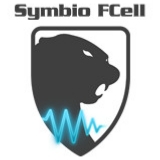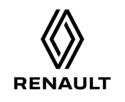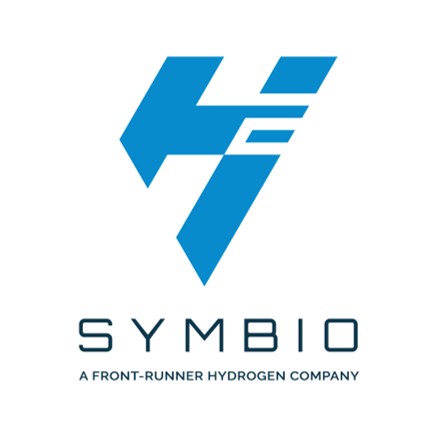Our history
Presentation text
Since its creation in 2010, Symbio has grown from a start-up into a leading industrial player in hydrogen fuel cell technology.
Dates
Year
2010
Image

Text
Creation of SYMBIOFCell, a start-up based near Grenoble specialized in the design and development of fuel cell systems.
Year
2012
Image

Text
- First Kangoo H2 vehicle on the road
Year
2018
Image

Text
- Michelin acquires a 100% stake in SYMBIO F Cell (after becoming minority shareholder as early as 2014),
- 40 employees.
Year
2019
Image

Text
- SYMBIO becomes a 50-50 joint venture between FORVIA (formerly Faurecia) and Michelin,
- SYMBIO becomes the innovation partner of Stellantis to develop its hydrogen light commercial,
- Around 100 employees.
Year
2021
Image
Text
- SYMBIO expands its commercial presence to the USA,
- Creation of the SYMBIO Hydrogen Academy, a pioneering initiative to train our employees, as well as our customers and other players in the ecosystem, in hydrogen-specific jobs and skills.
Year
2022
Image

Text
- The HyMotive project, designed to accelerate SYMBIO's industrialization and disruptive innovation, is supported by France Relance/France 2030 as part of the Hy2Tech wave of the IPCEI (important projects of common European interest) hydrogen program.
- Creation of the Innoplate joint venture with Schaeffler. Located in Haguenau, the company was set up to produce bipolar plates - a strategic component in fuel cells - and is targeting annual production of 50 million units by 2030.
Year
2023
Image

Text
- Expansion of our industrial footprint in the USA with the opening of our site in Temecula, California, supported by the California Energy Commission (CEC).
- Stellantis acquires an equal stake in SYMBIO, along with FORVIA and Michelin.
- Opening of our Gigafactory in Saint-Fons. Called SymphonHy, it is the largest fuel cell stack and system production site in Europe and will reach its total production capacity of 20,000 systems per year by 2028.
- More than 600 employees.
Year
2024
Image

Text
- Industrial scale-up, with the commissioning of our gigafactory in Saint-Fons, our factory in Temecula (California, USA), and the Innoplate factory in which we are co-shareholders, in Haguenau.
Year
2012
Image

Text
- First Kangoo H2 vehicle on the road
Year
2019
Image

Text
- SYMBIO becomes a 50-50 joint venture between FORVIA (formerly Faurecia) and Michelin,
- SYMBIO becomes the innovation partner of Stellantis to develop its hydrogen light commercial,
- Around 100 employees.
Year
2022
Image

Text
- The HyMotive project, designed to accelerate SYMBIO's industrialization and disruptive innovation, is supported by France Relance/France 2030 as part of the Hy2Tech wave of the IPCEI (important projects of common European interest) hydrogen program.
- Creation of the Innoplate joint venture with Schaeffler. Located in Haguenau, the company was set up to produce bipolar plates - a strategic component in fuel cells - and is targeting annual production of 50 million units by 2030.
Year
2024
Image

Text
- Industrial scale-up, with the commissioning of our gigafactory in Saint-Fons, our factory in Temecula (California, USA), and the Innoplate factory in which we are co-shareholders, in Haguenau.
Year
2018
Image

Text
- Michelin acquires a 100% stake in SYMBIO F Cell (after becoming minority shareholder as early as 2014),
- 40 employees.
Year
2021
Image
Text
- SYMBIO expands its commercial presence to the USA,
- Creation of the SYMBIO Hydrogen Academy, a pioneering initiative to train our employees, as well as our customers and other players in the ecosystem, in hydrogen-specific jobs and skills.
Year
2023
Image

Text
- Expansion of our industrial footprint in the USA with the opening of our site in Temecula, California, supported by the California Energy Commission (CEC).
- Stellantis acquires an equal stake in SYMBIO, along with FORVIA and Michelin.
- Opening of our Gigafactory in Saint-Fons. Called SymphonHy, it is the largest fuel cell stack and system production site in Europe and will reach its total production capacity of 20,000 systems per year by 2028.
- More than 600 employees.
